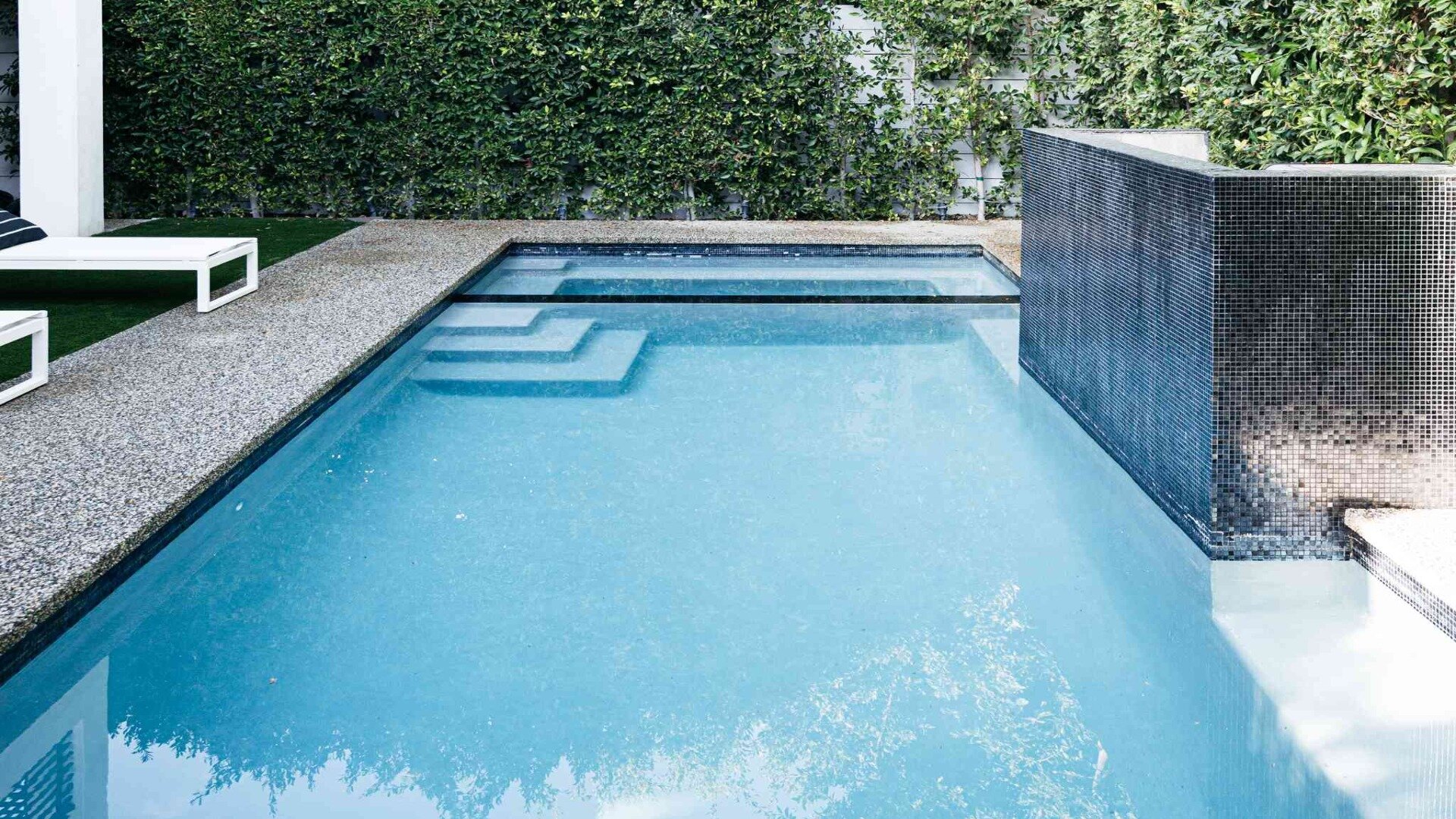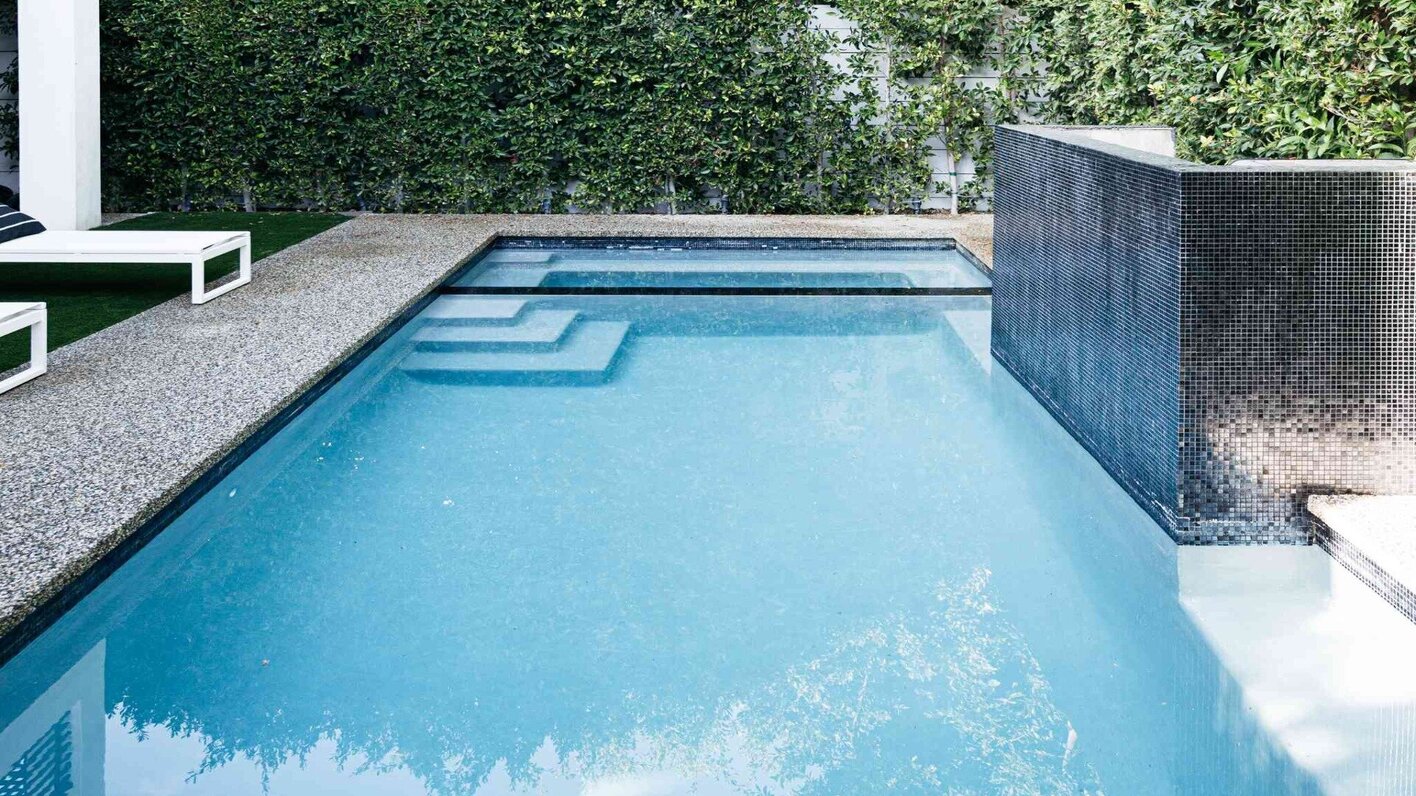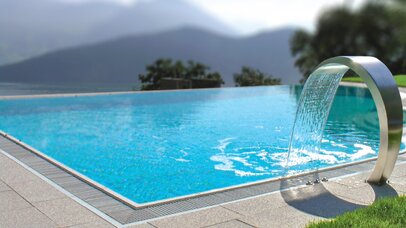
Whether you have a plaster, pebble, quartz or vinyl pool finish, keeping it in good shape requires tailored maintenance. At the same time, the overall goal is the same - a clean, clear pool - the unique properties of each material mean they respond differently to chemicals, dirt, staining and repairs. Knowing how to care for your specific pool surface type properly is important for extended lifespan and maximum enjoyment.
In this complete guide, we’ll break down everything you need to know to maintain your pool’s finish successfully through every season. We’ll explore the different needs of plaster, pebble, quartz and vinyl surfaces when it comes to cleaning, balancing water chemistry, addressing stains or punctures, and making repairs. Plus, general pool care essentials like filtration, chlorination and vacuuming techniques.
By understanding your material’s individual quirks and weaknesses, you can keep your finish looking pristine for years with minimal effort following our customised care routines and product recommendations.
Plaster Pool Maintenance
Plaster pools are durable and affordable but require regular care to preserve their surface. The porous nature of plaster means it can absorb chemicals, stains and contaminants more easily than other options like pebbles or quartz.
Brushing plaster pools at least once a week is important to remove debris and prevent algae growth. Pay close attention to maintaining balanced water chemistry, keeping pH, alkalinity and chlorine levels in their proper ranges.

Be on the lookout for any calcium stains or marks and address them promptly with the right cleaners before they become embedded. Minor chips or cracks can be repaired, but catching problems early is best. Following a consistent plaster care routine will keep your finish looking like new.
Caring for Pebble and Quartz Pools
Pebble and quartz pool finishes don’t absorb chemicals like traditional plaster, so maintenance requires a slightly different approach. Both pebble and quartz are more durable surfaces that don’t need weekly brushing, like plaster.
However, it’s still important to check the water’s chemistry regularly and maintain proper chlorine, pH and alkalinity levels. These surfaces don’t stain as easily, but you’ll still want to clear away any leaves or debris to keep the water clean.

Every few years, it may be necessary to replenish pebble pools with new stones to restore the aesthetic. Quartz is more durable and typically doesn’t need resurfacing. Pebble and quartz need occasional scrubbing with an all-surface cleaner and balanced water to stay pristine.
Vinyl Liner Pool Maintenance
Vinyl liner pools require a different maintenance focus compared to solid surface pools. Regular visual inspections of the liner’s surface and seams are essential to catch any punctures or tears before major leaks occur.
Removing leaves and other debris is also key since vinyl can snag on solid materials. Be sure to vacuum around the liner edges during cleanings carefully. Check for cracks around the liner mounting hardware as well.

Most liners last 5-10 years with proper care. When replacement is needed, thoroughly clean and dry the pool before removing the old liner and installing the new one. With vigilant inspections and debris control, vinyl liners can remain watertight, requiring less chemical balancing than plaster finishes.
General Tips for All Pool Finishes
While the specifics may vary between different pool surface materials, some core practices are important for all pool finishes. Keeping your water chemically balanced, well-filtered, and debris-free goes a long way in preserving any pool’s integrity and beauty.
Chlorination
Proper chlorine levels are key to sanitising the water, no matter the finish. Test levels weekly and shock as needed to keep chlorine between 1-3 ppm. This prevents algae and keeps your surface protected.
Filtration
A working pump and clean filter are essential for crystal-clear water. Based on manufacturer instructions, Backwash or replace filter elements every 4-6 weeks. Dirty filters can’t do their job.

Vacuuming
Remove leaves and other particles before they become embedded in your finish. Vacuum weekly or as needed, especially after parties or heavy use.
Coping & Tiles Care
These features also need love. Gently scrub or brush coping and tiles regularly with a pool cleaner to remove mineral deposits or moulds that can grow. Address any chipped areas promptly.
Schedule for Routine Maintenance
Keeping a regular pool maintenance schedule is key to reducing work over the long run and preventing small issues from becoming costly repairs. Aim to check chemical levels and scrub or brush your pool once per week throughout the season.
Deeper cleaning tasks like vacuuming and scrubbing can start monthly. During the busy summer months, you may need to vacuum biweekly. In the fall, perform a thorough cleaning to close your pool for winter.

In spring, thoroughly brush and check your pool before refilling. Stick to your tailored schedule based on the specific needs of your pool finish for years of enjoyable swimming with minimal effort.
Stop Stressful Surprises
By following the tailored maintenance routines outlined in this guide, you now have the knowledge to keep your pool’s unique surface in top shape all season long. Whether you have a plaster, pebble, quartz or vinyl liner finish, understanding the specific needs of your material’s care will help avoid bigger future problems.
Always feel free to contact the experts at The Pool Co if you have any other questions. We’re here to help you care for your pool with customised product recommendations and professional troubleshooting advice.
Let us be your one-stop resource to alleviate confusion and take the stress out of pool ownership. A perfectly maintained pool is a safer, more enjoyable backyard oasis for your family.



